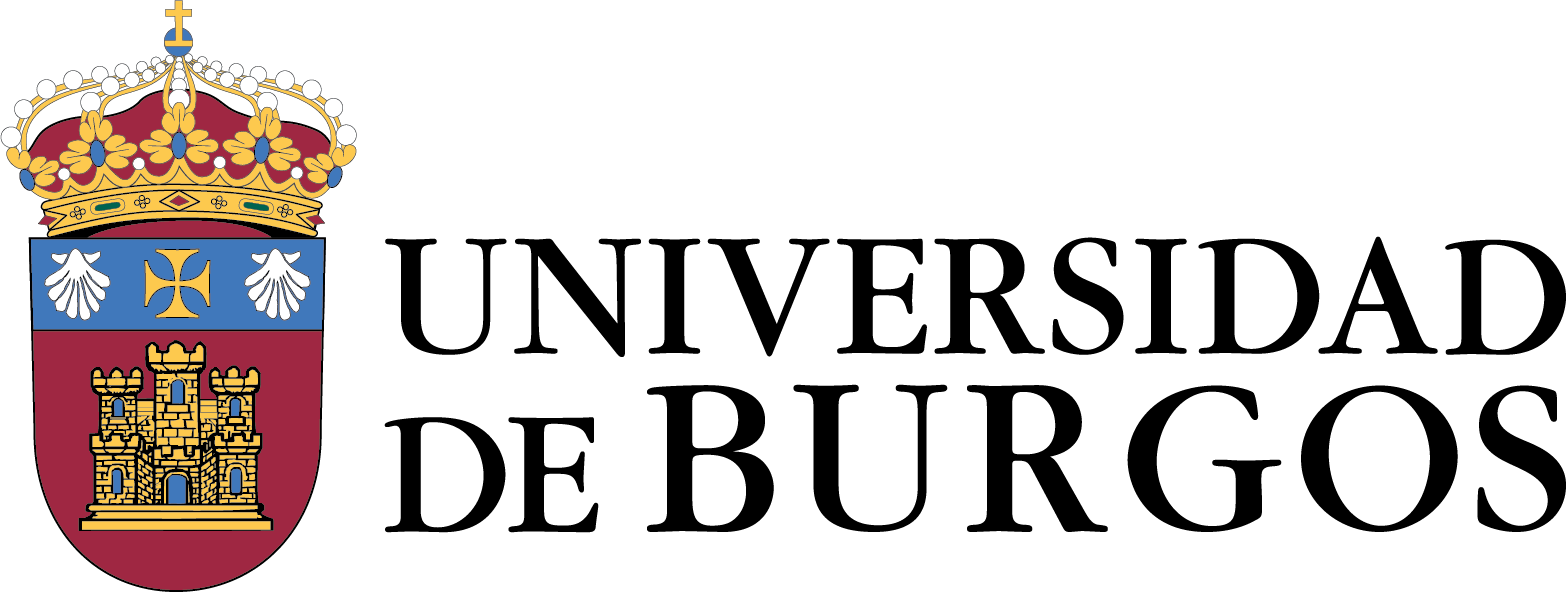Strategic Partnership
Our project is led by the University of Burgos from an interdisciplinary and international consortium.
UNIVERSITY OF BURGOS

The University of Burgos leads the SmartArt project as a coordinating entity. The University of Burgos was founded in 1994 and assumed its role in the local and regional economy and in the broader scientific development, responding to market demands and developing extensive research networks. It has an average of 8,000 students and offers 28 degrees and 23 master's degrees. In addition, the UBU offers degrees in virtual mode (five degrees and 7 master's degrees). The UBU is committed to personalized and quality learning, which focuses on promoting teaching innovation and personalized attention to students. With this aim in mind, the UBU has a Quality Assessment Area that works with regional quality agencies (ACSUCYL) such as the national (ANECA) and the European (ENQUA) that ensures compliance with quality standards in qualifications. The results are the renewal of the accreditation of all their qualifications, as well as obtaining the quality certification of the Program of evaluation of the institutional quality of teaching (Docentia) by the ANECA and ACSUCYL Agencies. In addition, the Institute of Educational Training and Innovation offers different training actions for teachers and staff, including the Virtual Teaching Training Plan. In addition, the UBU is committed to internalization and bilingual teaching in English, as well as the use of new technologies applied to teaching. In short, the UBU is a young institution dedicated to continuous improvement, transparency and accountability to society. In addition, it offers a modern and constantly updated education, both formal and informal, with the use of the most advanced technology.
Researchers from the University of Burgos who collaborate on the project have an interdisciplinary profile as endorsed by their membership in four research groups:
Data Analysis Techniques Applied in Health Environments Sciences DATAHES, its members are experts in the research on functional learning and in the application of data mining techniques applied to the fields of health and education (children, young people and adults).
Artistic Heritage (PART), are members are experts in Art History and dissemination and preservation of heritage from a line of dissemination and transfer of research results to society.
Geographical Studies and Territorial Analysis (GEOTER), its members are experts in geographical analysis of the urban and rural environment as well as its evolution and historical transformation.
Advanced Data Mining Research and Bioinformatics Learning (ADMIRABLE), its members are experts in the research of Data Mining techniques applied to different fields of knowledge.
All groups have extensive research experience with numerous results in knowledge transfer.
UNIVERSITY OF MINHO
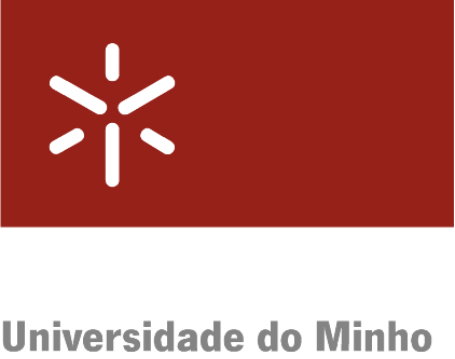 Founded in 1973, the University of Minho (UMinho) is today one of the most important and prestigious institutions of higher education in Portugal. It is recognized for the competence and quality of her faculty and for the level of excellence in research, as well as for the wide range of undergraduate and graduate courses it offers and the remarkable degree of interaction with other institutions and with society in general. The UM offers 39 cycle titles, 13 integrated MSc, about 150 MSc programs and more than 50 doctoral programs (several international programs involving prestigious international partners such as MIT, CMU, Harvard, KUL, etc.). The campi de Gualtar, in Braga, and Azurém, in Guimarées, cover a student population of more than 19000 people, in addition to 1200 teachers and almost 800 technicians and administrative people, making UM one of the largest IES in Portugal. The 11 Schools are quite complete and are a reference for their academic and scientific quality at national and international level. All courses and degrees are evaluated and accredited by the relevant official bodies. Internationalisation is an institutional priority and has a long and solid experience in participating in various EU programmes. The Institute of Education (IE) is a new teaching and research unit of Minho University created in 2009 by joining the Centre for Child Studies and the Institute of Education and Psychology, in terms of its educational component. In accordance with its statutes, the mission of the IE is to develop projects of education, research and interaction with society in the wide field of education, thus contributing to the development and well-being of individuals, groups, educational organizations and society. The teaching activity of the IE is divided into bachelor's, master's and doctoral degrees specific to the IE or shared with other schools of the University of Minho. The IE also covers advanced scientific practices, doctorates in partnership with foreign and postdoctoral universities. Together with teaching activities, research developed at the IE focuses on educational processes, agents and contexts, teaching, learning, training and socio-educational development. Activities related to interaction with society, which include training courses in employment, studies and opinions, for example, are a way of making available to the community the knowledge and skills of the Institute's teachers and researchers. The various projects of the Institute extend beyond the national context, and at the international level it is worth highlighting cooperation with neighbouring countries regarding culture and language, as in the case of Portuguese-speaking countries. To fulfil its mission, the IE establishes partnerships with national and international institutions in order to enrich each other and achieve common objectives.
Founded in 1973, the University of Minho (UMinho) is today one of the most important and prestigious institutions of higher education in Portugal. It is recognized for the competence and quality of her faculty and for the level of excellence in research, as well as for the wide range of undergraduate and graduate courses it offers and the remarkable degree of interaction with other institutions and with society in general. The UM offers 39 cycle titles, 13 integrated MSc, about 150 MSc programs and more than 50 doctoral programs (several international programs involving prestigious international partners such as MIT, CMU, Harvard, KUL, etc.). The campi de Gualtar, in Braga, and Azurém, in Guimarées, cover a student population of more than 19000 people, in addition to 1200 teachers and almost 800 technicians and administrative people, making UM one of the largest IES in Portugal. The 11 Schools are quite complete and are a reference for their academic and scientific quality at national and international level. All courses and degrees are evaluated and accredited by the relevant official bodies. Internationalisation is an institutional priority and has a long and solid experience in participating in various EU programmes. The Institute of Education (IE) is a new teaching and research unit of Minho University created in 2009 by joining the Centre for Child Studies and the Institute of Education and Psychology, in terms of its educational component. In accordance with its statutes, the mission of the IE is to develop projects of education, research and interaction with society in the wide field of education, thus contributing to the development and well-being of individuals, groups, educational organizations and society. The teaching activity of the IE is divided into bachelor's, master's and doctoral degrees specific to the IE or shared with other schools of the University of Minho. The IE also covers advanced scientific practices, doctorates in partnership with foreign and postdoctoral universities. Together with teaching activities, research developed at the IE focuses on educational processes, agents and contexts, teaching, learning, training and socio-educational development. Activities related to interaction with society, which include training courses in employment, studies and opinions, for example, are a way of making available to the community the knowledge and skills of the Institute's teachers and researchers. The various projects of the Institute extend beyond the national context, and at the international level it is worth highlighting cooperation with neighbouring countries regarding culture and language, as in the case of Portuguese-speaking countries. To fulfil its mission, the IE establishes partnerships with national and international institutions in order to enrich each other and achieve common objectives.
UNIVERSITY OF OVIEDO
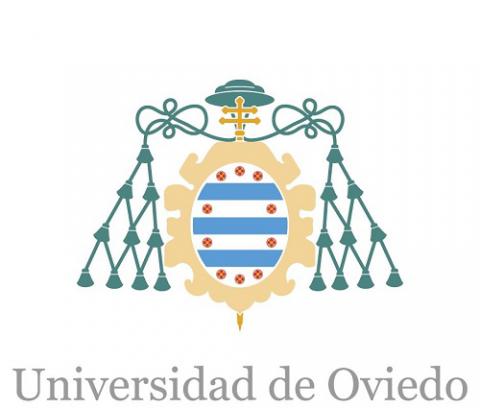 The University of Oviedo is a higher education institution founded in 1608 in the Principality of Asturias, in northern Spain. As set out in its statutes, the University of Oviedo has the following objectives: a) creation, development, transmission and criticism of science, technology and culture; (b) qualification for the development of professional activities requiring the application of scientific and technical knowledge and methods, as well as for artistic creation; c) scientific, professional and artistic specialization of master's and doctoral levels; (d) social dissemination of science, technology and culture through "University Extension" and lifelong learning activities; (e) scientific and technical support for cultural, social and economic development, as well as the preservation, conservation and improvement of the environment; (f) promotion of cultural, sporting and social activities within the university community; (g) contribution to the formation of free citizens, promoting a critical and participatory attitude in the University and in society; (h) defence and empowerment of peaceful dialogue and mutual respect as forms of inter-community relationship. Teaching, study and research are the main functions of the University for the fulfillment of the before mentioned objectives. The educational offer covers the fields of the arts and humanities, sciences, health sciences, social and legal sciences and engineering and architecture.
The University of Oviedo is a higher education institution founded in 1608 in the Principality of Asturias, in northern Spain. As set out in its statutes, the University of Oviedo has the following objectives: a) creation, development, transmission and criticism of science, technology and culture; (b) qualification for the development of professional activities requiring the application of scientific and technical knowledge and methods, as well as for artistic creation; c) scientific, professional and artistic specialization of master's and doctoral levels; (d) social dissemination of science, technology and culture through "University Extension" and lifelong learning activities; (e) scientific and technical support for cultural, social and economic development, as well as the preservation, conservation and improvement of the environment; (f) promotion of cultural, sporting and social activities within the university community; (g) contribution to the formation of free citizens, promoting a critical and participatory attitude in the University and in society; (h) defence and empowerment of peaceful dialogue and mutual respect as forms of inter-community relationship. Teaching, study and research are the main functions of the University for the fulfillment of the before mentioned objectives. The educational offer covers the fields of the arts and humanities, sciences, health sciences, social and legal sciences and engineering and architecture.
UNIVERSITY OF VALLADOLID
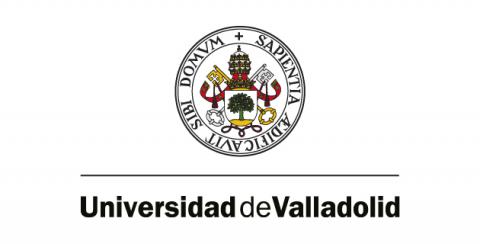 The University of Valladolid is one of the most important centers of higher education in Spain. On average, nearly 28,000 students enroll each year, has more than 2,600 teachers and nearly 1,000 people who take care of administration and other services. UVA offers 29 doctoral programs (13 of them interuniversity) through its UVA Doctoral School (EsDUVA). EsDUVA registers 1700 PhD students worldwide each year and has its own funds for its PhD School Training Programs (transferable skills and research-oriented skills). UVA manages around 180 annual research projects financed through competitive public calls for R&D&I (European, national or regional), and approximately 500 contracts and knowledge and technology transfer agreements, with an average value of more than fifteen million euros per year. In addition, its researchers participate in almost 250 additional projects and contracts managed by other institutions. On the other hand, UVA has the support and extensive experience of its European Projects Office at its General Foundation, the General Foundation of the University of Valladolid (FGUVA). FGUVA is a non-profit institution, fully controlled by UVA, created in order to manage the administrative and financial tasks of UVA in European R&D projects, including issues related to the way of contracting and paying staff, purchase of equipment, consumables, etc. FGUVA does not carry out technical or scientific tasks or work on the project and its contribution is free and is always used under the premises of UVA.
The University of Valladolid is one of the most important centers of higher education in Spain. On average, nearly 28,000 students enroll each year, has more than 2,600 teachers and nearly 1,000 people who take care of administration and other services. UVA offers 29 doctoral programs (13 of them interuniversity) through its UVA Doctoral School (EsDUVA). EsDUVA registers 1700 PhD students worldwide each year and has its own funds for its PhD School Training Programs (transferable skills and research-oriented skills). UVA manages around 180 annual research projects financed through competitive public calls for R&D&I (European, national or regional), and approximately 500 contracts and knowledge and technology transfer agreements, with an average value of more than fifteen million euros per year. In addition, its researchers participate in almost 250 additional projects and contracts managed by other institutions. On the other hand, UVA has the support and extensive experience of its European Projects Office at its General Foundation, the General Foundation of the University of Valladolid (FGUVA). FGUVA is a non-profit institution, fully controlled by UVA, created in order to manage the administrative and financial tasks of UVA in European R&D projects, including issues related to the way of contracting and paying staff, purchase of equipment, consumables, etc. FGUVA does not carry out technical or scientific tasks or work on the project and its contribution is free and is always used under the premises of UVA.
BJÄLAND

Bjäland is a Spanish Research and Development company, working on the development of information and technology to increase user involvement in different environments, such as patient training, self-care and serious gaming platforms.
They are experts in methodologies that increase the technological capabilities of users, breaking down barriers in the elderly and disabled. In this sense, they have developed programs to empower patients, improving the management of their own health and allowing them to become future coaches for other patients.
PARAGON EUROPE
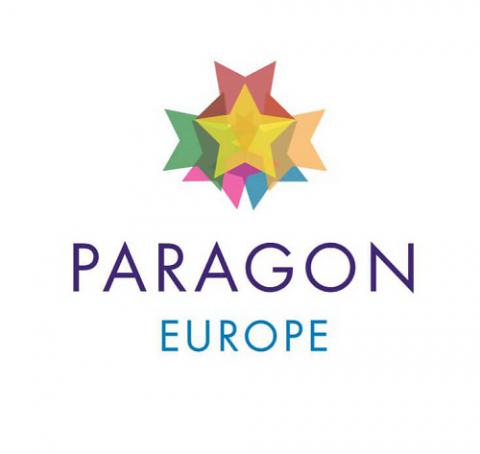
Paragon Europe it is an innovative advisory, research and management company based in Malta and a representative office in Brussels. Since its inception, Paragon's motto is to achieve excellence for all its customers and partners. In fact, since 2004, our multilingual, multicultural and multidisciplinary team has developed the right experience to carry out project and tender activities with the highest standards. In Malta, Paragon coordinates at the national level Climate-KIC, the Water Cluster, the Digital Cluster and MEDENER.
In projects and tenders, Paragon Europe works in partnership with advisory companies, research and technology organizations, regional and local authorities and non-profit organizations, contributing its expertise in the implementation of commercial and financial plans, communication campaigns, stakeholder participation and outreach activities, feasibility and pre-deployment studies, climate impact assessments , socio-economic impact assessments and pilot facilities to demonstrate the innovation potential of new solutions.
Active in CSR Europe, Paragon also partners with European and American educational institutes and organizations that act as a port of call for learning mobility programmes in Malta and Brussels. The full cycle of mobility is managed internally, from logistics to vocational training and language teaching.
